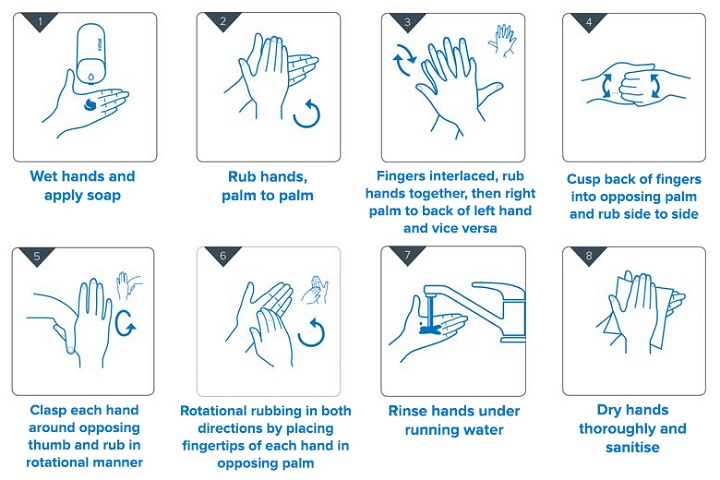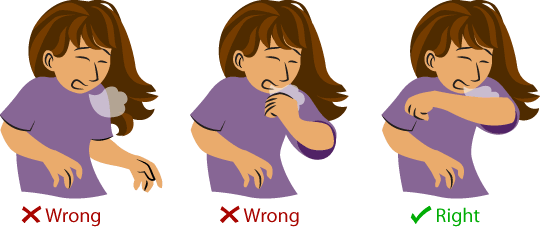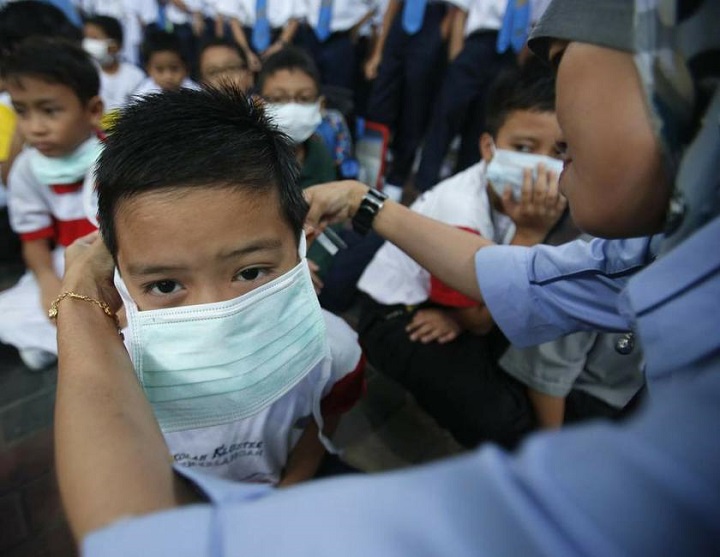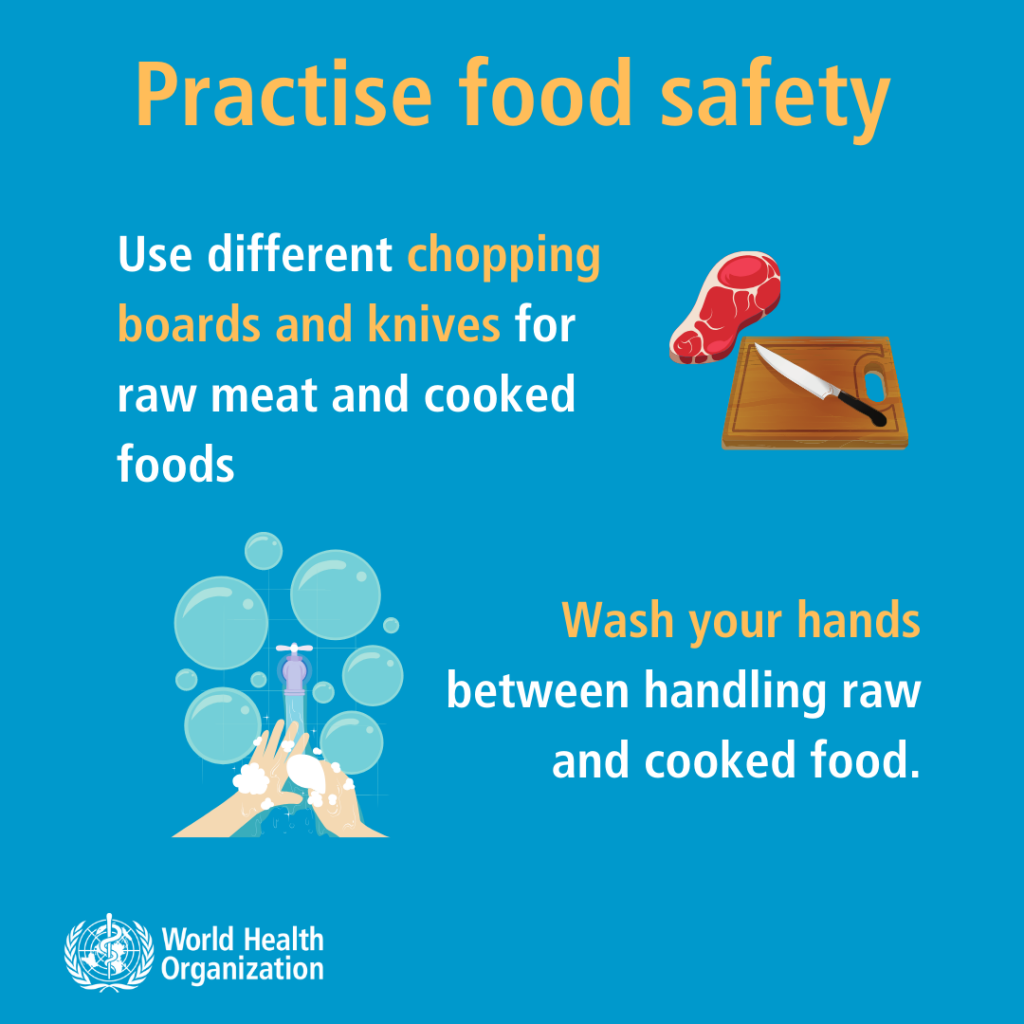Don’t Panic, Here’s How To Protect Yourself During An Outbreak

Subscribe to our Telegram channel for the latest updates on Covid-19 and other issues.
Malaysia is no stranger to seasonal influenza – such as the case of the late 2019/early 2020 outbreak of seasonal influenza (influenza A/H1N1) in Malaysia.
Compound this with the spread of the previously unknown 2019 Novel Coronavirus (2019-nCoV) or COVID-19, it’s more important than ever to know how to protect yourself from these viruses.
While there is no evidence that the Wuhan virus is airborne, it is known to spread through inhalation of airborne particles emitted through coughing or sneezing, similar to the transmission of seasonal influenza.
With all that in mind, here’s a guide sourced from health organisations to help you protect yourself during an outbreak.
Wash your hands frequently

(Credit: Pixabay)
Viruses can be spread by contaminated hands, so it’s vital to wash your hands frequently with alcohol-based hand rub or soap and water, especially in the following situations:
- Before touching the eyes, nose and mouth
- Before eating or handling food
- After using the toilet
- When hands are contaminated by secretions after coughing or sneezing
- After touching public installations or equipment, such as doorknobs, handrails or elevator buttons
- After changing diapers or handling soiled things when looking after young children or the sick
There is a right wash hands though. According to the Hong Kong Department of Health, good hand washing technique is an important personal hygiene practice to prevent contracting and spreading communicable disease.

After drying hands with a paper towel, make sure to dispose of it properly. Meanwhile, hand towels should be washed at least once daily.
If you are using an alcohol-based hand sanitiser, the US Centre of Disease Control (CDC) recommends that the sanitiser should contain at least 60% alcohol to effectively kill germs.
Cough & sneeze correctly
When coughing and sneezing, cover the mouth and nose with a bent elbow (cough or sneeze into the elbow). You can also use a tissue, but it should be thrown away immediately and wash your hands after.

(Credit: susanvanhoosen.com)
Wear a face mask the right way
Face masks don’t offer full protection against airborne viruses because they don’t seal off they nose and mouth, plus the eyes are still exposed. However, they do lower the chance of virus transmission.
According to New Scientist magazine, there are two main types of masks that can be used as protection from airborne viruses.

(Credit: Reuters pic via Malay Mail)
Surgical masks – Designed to block liquid droplets and are not designed to be used more than once. It consists of a coloured waterproof outer layer, a middle barrier and absorbent inner layer.
In general, the coloured side with downwards facing folds should face outside. The metallic strip must be moulded over the nose to fit snugly over the face.
N95 – Offers more protection as it is designed to prevent 95% of small particles from entering the nose and mouth area. However, only works if it fits properly so it is not suitable for children or people with facial hair.

(Credit: Salient Information Sdn Bhd)
Once you have the right protective mask on, it’s important to know how to use it properly as well.
Do not touch the face mask once it’s on and change it immediately if it gets wet or dirty with secretions. Throw away single-use masks, do not wear them again.
Most importantly, remember to wash your hands after removing masks.
Avoid large gatherings

Seasonal influenza spreads rapidly in crowded areas such as schools and public transportation. Avoid public spaces whenever possible during an outbreak and avoid close contact (at least 1-metre distance) with anyone that has a fever and cough.
When an infected person coughs or sneezes, droplets containing viruses are dispersed into the air and can spread up to one meter. The virus can infect persons in close proximity who breathe these droplets in.
If you have the sniffles, just stay at home to minimise the risk of infecting others in your community.
Top up your vaccinations

It’s a little hard to stay on track with getting vaccinations, but it’s important to get regular vaccinations as immunity from the vaccination wanes over time.
The World Health Organisation (WHO) points out that even when the circulating virus does not match the vaccine viruses, influenza vaccine still provides protection in healthy adults. For the elderly, influenza vaccination is less effective in preventing illness, but it does help reduce the severity of the disease.
WHO recommends annual vaccination against influenza for the following groups:
- pregnant women at any stage of pregnancy
- children aged between 6 months to 5 years
- elderly individuals (aged more than 65 years)
- individuals with chronic medical conditions
- healthcare workers
- People who live with or care for people at risk
Keep yourself updated
The most important thing to remember during an outbreak is to stay calm and keep yourself updated from verified sources.
Amalkan etika batuk dan bersin yang betul untuk mengelakkan penularan virus.#influenza#sihatmilikku#walkthetalk pic.twitter.com/F4ny5ko6ei
— KKM Portal MyHealth (@MyHEALTHKKM) January 24, 2020
Malaysia’s Health Ministry regularly provides information on the development of outbreaks as well as a wealth of information on local healthcare issues.
WHO also provides guidelines on disease management and regular reports on the development of outbreaks. (Or you can stay tuned to TRP as we keep you updated!)

Don’t forget to stay safe during an outbreak and share this article to help keep people protected.
Share your thoughts with us on TRP’s Facebook, Twitter, and Instagram!
She puts the pun in Punjabi. With a background in healthcare, lifestyle writing and memes, this lady's articles walk a fine line between pun-dai and pun-ishing.





